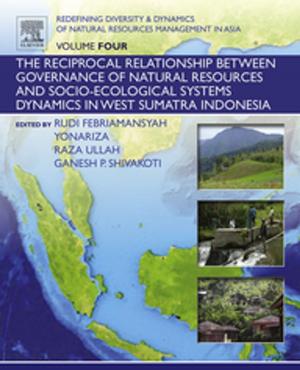Earthquake-Resistant Structures
Design, Build, and Retrofit
Nonfiction, Science & Nature, Technology, Engineering, Civil| Author: | Mohiuddin Ali Khan | ISBN: | 9780080949444 |
| Publisher: | Elsevier Science | Publication: | March 18, 2013 |
| Imprint: | Butterworth-Heinemann | Language: | English |
| Author: | Mohiuddin Ali Khan |
| ISBN: | 9780080949444 |
| Publisher: | Elsevier Science |
| Publication: | March 18, 2013 |
| Imprint: | Butterworth-Heinemann |
| Language: | English |
Earthquake engineering is the ultimate challenge for structural engineers. Even if natural phenomena involve great uncertainties, structural engineers need to design buildings, bridges, and dams capable of resisting the destructive forces produced by them. These disasters have created a new awareness about the disaster preparedness and mitigation. Before a building, utility system, or transportation structure is built, engineers spend a great deal of time analyzing those structures to make sure they will perform reliably under seismic and other loads. The purpose of this book is to provide structural engineers with tools and information to improve current building and bridge design and construction practices and enhance their sustainability during and after seismic events. In this book, Khan explains the latest theory, design applications and Code Provisions. Earthquake-Resistant Structures features seismic design and retrofitting techniques for low and high raise buildings, single and multi-span bridges, dams and nuclear facilities. The author also compares and contrasts various seismic resistant techniques in USA, Russia, Japan, Turkey, India, China, New Zealand, and Pakistan.
- Written by a world renowned author and educator
- Seismic design and retrofitting techniques for all structures
- Tools improve current building and bridge designs
- Latest methods for building earthquake-resistant structures
- Combines physical and geophysical science with structural engineering
Earthquake engineering is the ultimate challenge for structural engineers. Even if natural phenomena involve great uncertainties, structural engineers need to design buildings, bridges, and dams capable of resisting the destructive forces produced by them. These disasters have created a new awareness about the disaster preparedness and mitigation. Before a building, utility system, or transportation structure is built, engineers spend a great deal of time analyzing those structures to make sure they will perform reliably under seismic and other loads. The purpose of this book is to provide structural engineers with tools and information to improve current building and bridge design and construction practices and enhance their sustainability during and after seismic events. In this book, Khan explains the latest theory, design applications and Code Provisions. Earthquake-Resistant Structures features seismic design and retrofitting techniques for low and high raise buildings, single and multi-span bridges, dams and nuclear facilities. The author also compares and contrasts various seismic resistant techniques in USA, Russia, Japan, Turkey, India, China, New Zealand, and Pakistan.
- Written by a world renowned author and educator
- Seismic design and retrofitting techniques for all structures
- Tools improve current building and bridge designs
- Latest methods for building earthquake-resistant structures
- Combines physical and geophysical science with structural engineering















